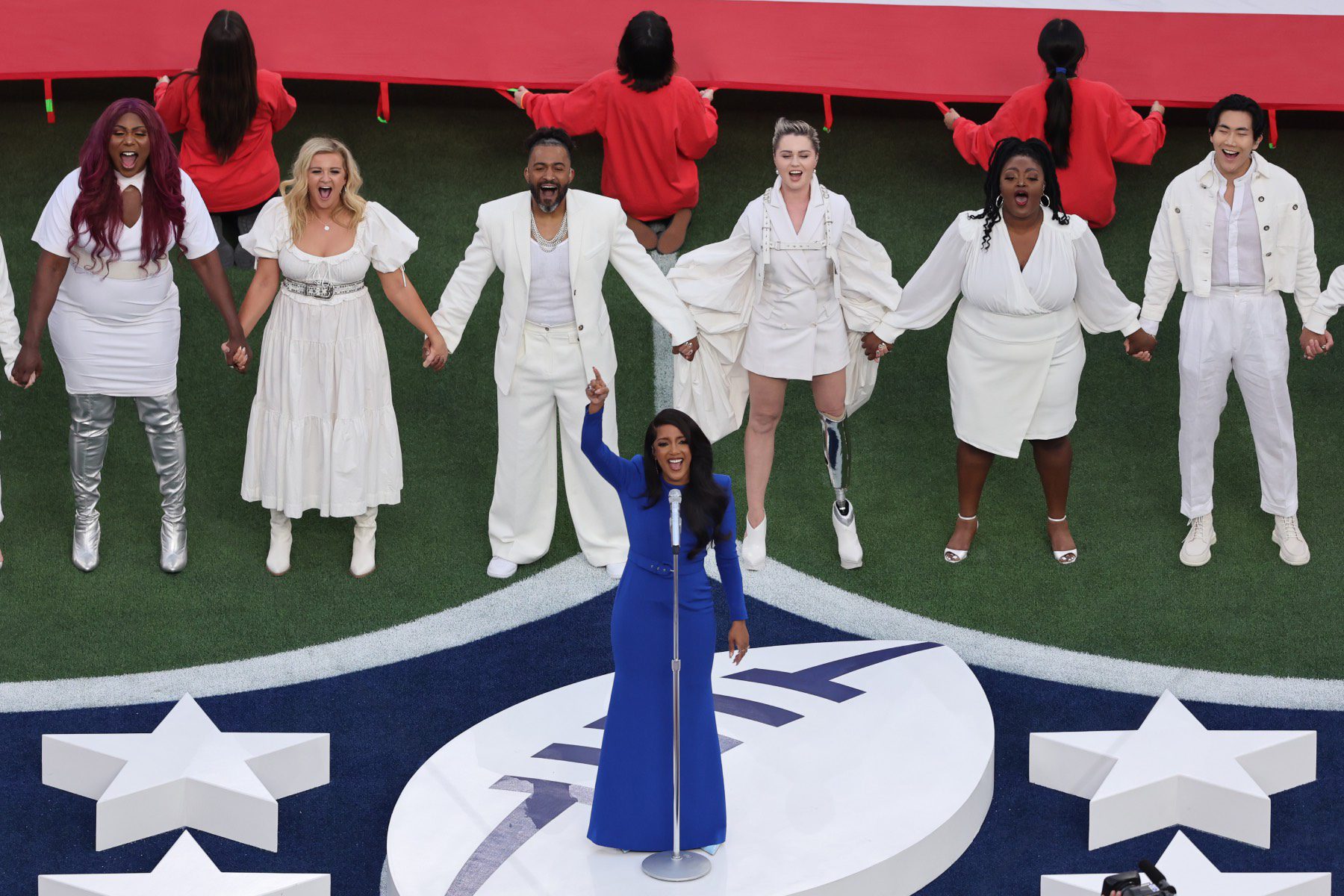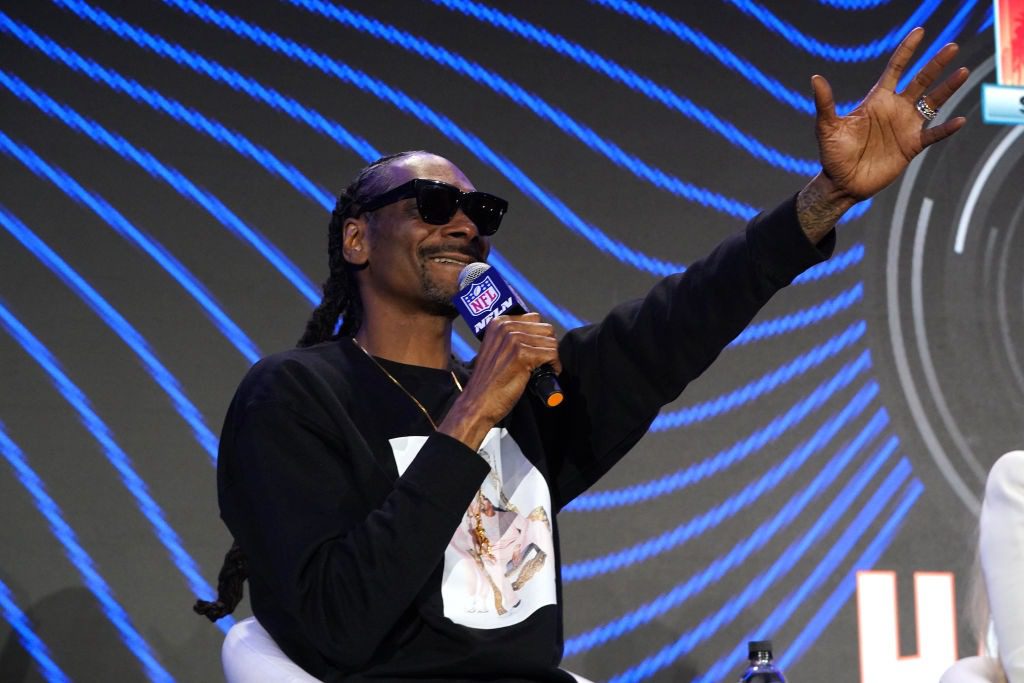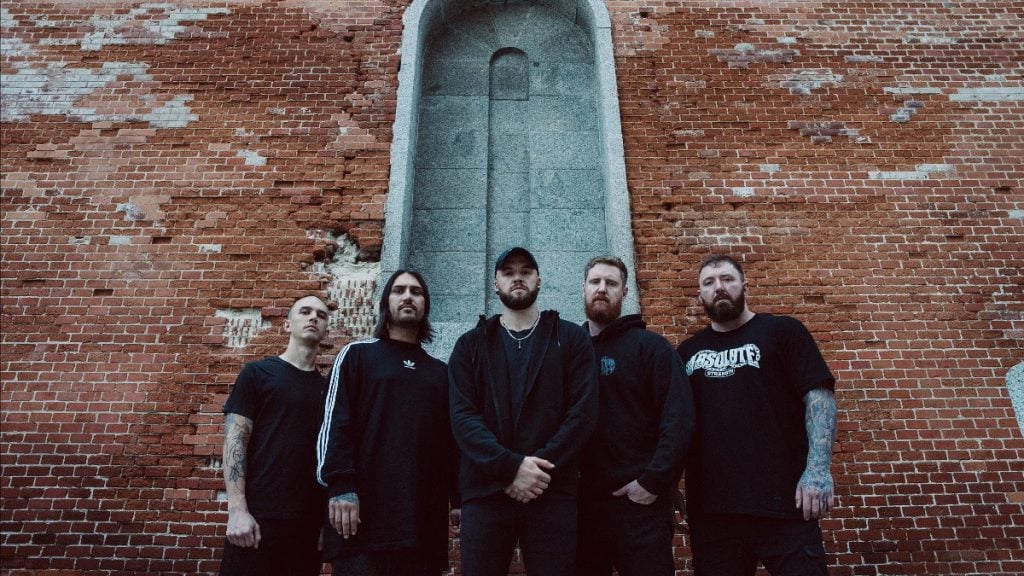
Why Mickey Guyton’s Super Bowl Performance Mattered for America
For all of its national holiday status, Super Bowl Sunday can be a complicated matter, especially when you consider the NFL’s tumultuous record surrounding issues of race. See the league’s handling of Colin Kaepernick or coach Brian Flores. But the NFL made the right call for Super Bowl LVI when it invited Mickey Guyton — a Black country music singer — to perform the national anthem.
Introduced by the SoFi Stadium announcer as having “the voice of an angel,” Guyton certainly lived up to the description. Dressed in vibrant blue and backed by a diverse 10-person choir wearing all white, Guyton showed off her massive range in the rendition — starting the song high, and soaring ever higher as her accompaniment filled in. The choir’s gospel-influenced backing harmonies in this arrangement also allowed Guyton the freedom to add some soulful embellishments during the song’s big sustained notes. And though the broadcast frequently cut away to catch players’ pre-game faces, it returned in time to witness Guyton punctuating her final stirring notes with one finger pointed skyward, clearly overcome with emotion.
blogherads.adq.push(function () {
blogherads
.defineSlot( ‘medrec’, ‘gpt-dsk-tab-country-article-inbody1-uid0’ )
.setTargeting( ‘pos’, [“mid-article”,”mid”,”in-article1″,”btf”] )
.setSubAdUnitPath(“music//country//article//inbody1”)
.addSize([[300,250],[620,350],[2,2],[3,3],[2,4],[4,2]])
;
});
That Guyton only released her debut album, Remember Her Name, last September, puts her in extremely rare company among pop musicians who have performed the national anthem at the Super Bowl. Aside from Jordin Sparks in 2008 and Jennifer Hudson in 2009, the bulk of singers chosen for TV’s biggest stage have been well-established stars with a catalog of hits: Cher, Garth Brooks, Whitney Houston, even peak-period Charley Pride in 1974.
But while a vast portion of tonight’s viewing audience were no doubt Googling Guyton’s name — excluding the NBC camera crew who awkwardly misidentified “America the Beautiful” singer Jhené Aiko as Guyton — the Texas native is no newcomer. She signed her major label deal with Universal Music Group’s Nashville division more than 10 years ago and began releasing music in 2015. Her early attempts at radio play — still the thing that makes a country music career — were disappointing. “Better Than You Left Me,” a beautifully sung and well-produced bit of country-pop, peaked at Number 34.
At the time, Guyton was the lone Black woman with a major label deal in Nashville, a distinction that underscores the country music industry’s long history of exclusionary and systemic racism while freely incorporating Black innovations into its sound. When Guyton’s early singles were struggling to gain traction, white men were having enormous success in the genre by adding touches of rap (Florida Georgia Line, Jason Aldean) or modern R&B (Sam Hunt) to their tales of small-town rural life.
Guyton found it all incredibly frustrating. By 2020, she’d had enough of trying to play the game and decided to start speaking up about what she’d been experiencing — as a Black woman in America, and in the microcosm of country music.
“Over the last couple of years I’ve changed my whole way of thinking to try to be as truthful and honest as I possibly can, about my life and what I’ve gone through, and about my feelings,” she told IndieLand in 2020 after she released the song “Black Like Me.” “For some reason in country music, they want just everything to be light and fluffy, but my world isn’t always light and fluffy.”
Speaking out has been Guyton’s salvation and, ironically in “shut up and sing” country music, it helped raise her profile. People began to take notice and UMG started to put some muscle behind building Guyton’s career. More singles were released — “Black Like Me,” “Heaven Down Here” — and her long-awaited album finally got a release date. Still, country radio play remained elusive.
blogherads.adq.push(function () {
blogherads
.defineSlot( ‘medrec’, ‘gpt-dsk-tab-country-article-inbody2-uid1’ )
.setTargeting( ‘pos’, [“mid-article”,”mid”,”in-article2″,”btf”] )
.setSubAdUnitPath(“music//country//article//inbody2”)
.addSize([[300,250],[300,251],[620,350],[2,4],[4,2]])
.setLazyLoadMultiplier(2)
;
});
But it turned out that Guyton didn’t really need radio — a raft of awards nominations, including four Grammy nominations, came her way, along with a high-profile gig hosting the 2021 Academy of Country Music Awards alongside Keith Urban. It was an object lesson in perseverance and resilience.
Guyton nodded to that perseverance with her performance at the Super Bowl. It was strong, unwavering, undaunted by the pressure of the moment — the poise of someone who’s been ready for the spotlight much longer than the brief time it’s been shining on her.
Yet Guyton’s success has been difficult for her to fully savor. More than once in this still young year, she’s shared diatribes, some unspeakably vile, directed her way on social media. We won’t post them here, but Guyton does on Instagram. “Get the F out of our country music!” tweeted a now-suspended account with the phrase “Let’s Go Brandon” right in its handle name. Another claimed she’s only at the Super Bowl because of her race and gender.
But somehow, Guyton always seems to persist, lifting up other performers in country and roots music at the same time, despite being on the receiving end of daily venom from racist shitheads who understand nothing of musical history.
Suffice it to say, country music is far from fixed. Its biggest star has yet to do much in the way of atoning for his use of the n-word, and there are still far too few non-white people in business roles, never mind ones with decision-making power. But, make no mistake, Mickey Guyton has earned her Super Bowl moment. It should be celebrated as a victory for her, for country music, and — even though we’ve still got a long way to go — for the America that could be.




